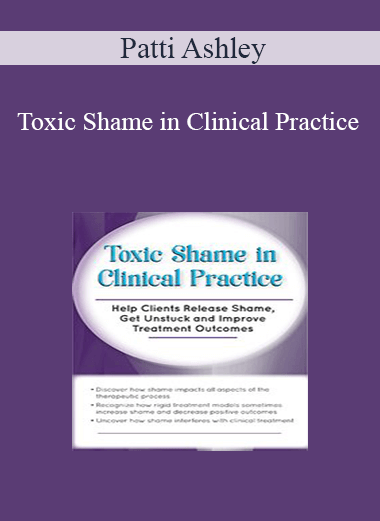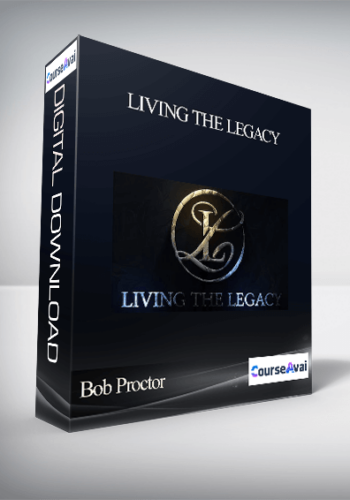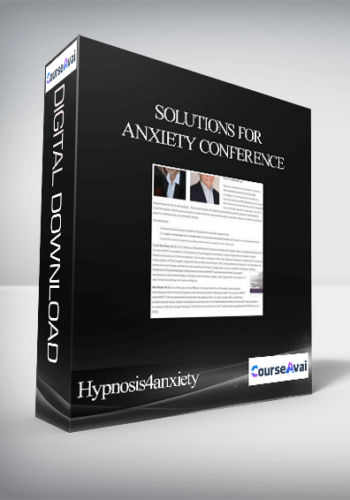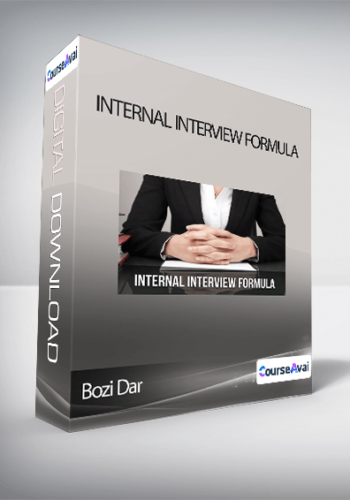Patti Ashley – Toxic Shame in Clinical Practice: Help Clients Release Shame, Get Unstuck and Improve Treatment Outcomes
Original price was: $219.99.$36.90Current price is: $36.90.
[Instant Download] – Immediately deliver the download link after receiving the payment
Description
Purchase Patti Ashley – Toxic Shame in Clinical Practice: Help Clients Release Shame, Get Unstuck and Improve Treatment Outcomes Course at GiOlib. We actively participate in group buys and are committed to sharing knowledge with a wider audience. What's more, our courses maintain the same quality as the original sale page. You have the option to buy directly from the sale page at the full price (sale page link is provided within the post).
- Faculty:
- Patti Ashley
- Duration:
- 5 Hours 49 Minutes
- Format:
- Audio and Video
- Copyright:
- Sep 14, 2018
Description
Outline
PART ONE: HOW SHAME SHOWS UP IN TREATMENT
Toxic Shame
Research & Definitions
- Ruptures in interpersonal relationships create a shame-based identity
- Shame and trauma function similarly in the nervous system
- Subconscious shame effects of poisonous parenting
- Attachment theories as they relate to shame
- D.W. Winnicott’s true self/false self
- Shame in family, culture and other systems
- Limitations of the research
Signs of Toxic Shame:
What to Watch for in Assessment and Beyond
- Individual Therapy – the client who:
- Talks the whole session
- Frequently cancels sessions
- Feels bad when progress seems to have eluded
- Terminates treatment early
- Deflects and projects onto others
- Relapses and does not return
- Minimizes problems
- Excessively intellectualizes and analyzes treatment
- Couples/Family Therapy
- The attack/defend patter
- Anger, rage and contempt
- Judgment of self and others
- Grandiosity, narcissism and self-inflation
- People pleasing and codependency
- Avoidance
- Problems with intimacy
- Group Therapy:
- Cross-talk
- Intellectualizing
- Silence
- Judgment
- Conflict
When the Therapist is Part of the Problem
Rigid Treatment Models May Increase Shame and Decrease Positive Outcomes
- Shame can be activated when therapist appears to be the “expert”
- Some strategies hinder treatment outcomes
- Strategies that may create barriers to creativity and relational presence
- Impact of mirror neurons and epigenetics
- How naming “shame” can be shaming
- Unconsciously enacting shaming parent
- Treating client as appointment or diagnosis
- What to do when your shame is triggered in-session
PART TWO: TREATING THE TOXIC SHAME
Effectively Treat Toxic Shame
Implications for Treatment to Move Forward with Clients
- Right and left brain integration
- Bottom-up versus top-down treatment approaches
- Modeling, engaging and sustaining self-compassion
- Repair the interpersonal bridge to self and others
- Courage and vulnerability in right-brain regulation
- Sustaining empathy in parallel process
- Transference and counter-transference in treatment
Therapeutic Strategies:
Putting It All to Practice
- Build a Safe Therapeutic Holding Environment
- Establish safety and trust
- Set a stage for treatment
- Strong foundation for therapeutic work
- Build a Solid Relationship
- Therapeutic empathy as the antidote for shame
- Connect and establish equal power
- Mindfulness and compassion
- Bridge the Head and Heart
- Psycho-education to demystify shame
- ”I” statements to identify shame-based feelings
- Going beyond cognitive therapy models
- Witness and guide clients through deeper layers
- Return shame to its origin
- Somatic strategies
- Re-wiring new neural pathways
- Experiential Tools and Techniques
- Creative arts, writing and movement activities
- Mindfulness and meditation
- Archetypes, story-telling and mythology
- Music and sound healing
- Journaling and letter-writing
- Working with Secrets
- Patience and compassion
- Deeper shame
- Tolerance and non-judgmental witnessing
- Creativity
- Every client is unique
- How therapy is like art
- Goodness of fit
- Research limitations and potential treatment risks
Faculty
Patti Ashley, Ph.D., L.P.C. Related seminars and products: 3
Patti Ashley, Ph.D., L.P.C. owns and operates Breakthrough Psychotherapy and Parent Coaching in Boulder, Colorado. Combining elements of developmental, cognitive, strength-based, and positive psychology, Dr. Ashley has created a psychotherapy model that helps clients excavate authenticity and life purpose. Identifying dysfunctional patterns and treating shame-based disorders are integral parts of her work with individuals, groups, couples and families.
Patti has over thirty-five years of experience in the fields of education and psychology. These include developing continuing education courses for physicians and hospital wellness programs; instructing undergraduate and graduate courses for universities; and counseling individuals, couples and families in mental health agencies, psychiatric hospitals, and private practice settings.
Dr. Ashley completed a Doctor of Philosophy Degree in 2002. she is the author of the book Living in the Shadow of the Too-Good Mother Archetype, (2014) Dr. Ashley is currently writing two other books scheduled for release in 2018: Reconciliation of the Heart: How Beliefs, Choices and Forgiveness Influence Authenticity and Life Purpose,and Letters to Freedom: A True Story of Grief and Love that Never Dies. Patti is also a featured journalist for numerous publications, and a frequent workshop presenter.
Speaker Disclosures:
Financial: Patti Ashley maintains a private practice. She receives a speaking honorarium from PESI, Inc.
Non-financial: Patti Ashley has no relevant non-financial relationship to disclose.
Purchase the Patti Ashley – Toxic Shame in Clinical Practice: Help Clients Release Shame, Get Unstuck and Improve Treatment Outcomes course at the best price at GiOlib. Upon completing your purchase, you will gain access to the downloads page. where you can conveniently retrieve all associated course files. Additionally, we will send you a download notification email to your registered mail.
Unlock your full potential with our Patti Ashley – Toxic Shame in Clinical Practice: Help Clients Release Shame, Get Unstuck and Improve Treatment Outcomes courses. Our courses are meticulously designed to empower you with the skills and knowledge needed for excellence.
Why wait? Take the first step towards greatness by acquiring our Patti Ashley – Toxic Shame in Clinical Practice: Help Clients Release Shame, Get Unstuck and Improve Treatment Outcomes courses today. We ensure a smooth and secure purchasing experience that guarantees your peace of mind. Rest assured that your financial information is safeguarded through our trusted payment gateways, Stripe and PayPal.
Stripe, renowned for its robust security measures, offers a secure and dependable payment process. Your sensitive data is encrypted using state-of-the-art technology, ensuring its confidentiality throughout the transaction.
PayPal, a globally recognized payment platform, adds an extra layer of security. With its buyer protection program, you can make your purchase with confidence, knowing that your financial details are protected, allowing you to focus on your learning journey.
Is it secure? to Use of?
- Rest assured, your identity remains completely confidential. We do not share your information with anyone, ensuring the utmost security when you buy the Patti Ashley – Toxic Shame in Clinical Practice: Help Clients Release Shame, Get Unstuck and Improve Treatment Outcomes course.
- 100% Safe Checkout Privateness coverage
- We employ robust communication and encryption methods to protect sensitive information. All card numbers are encrypted using AES at rest-256, and the transmission of card numbers occurs in a separate hosting environment, without sharing or storing any data.
How Will the Course Be Delivered?
- Upon successful payment for the “Patti Ashley – Toxic Shame in Clinical Practice: Help Clients Release Shame, Get Unstuck and Improve Treatment Outcomes course”, Most of the products will come to you immediately. But for some products were posted for offer. Please wait for our response, it might take a few hours due to the time zone difference.
- If this occurs, kindly be patient. Our technical department will process the link shortly, and you will receive notifications directly via email. Your patience is greatly appreciated.
What Shipping Methods Are Available?
- You will receive a download link in the invoice or in YOUR ACCOUNT.
- The course link is always accessible. Simply log in to your account to download the Patti Ashley – Toxic Shame in Clinical Practice: Help Clients Release Shame, Get Unstuck and Improve Treatment Outcomes course whenever you need.
- You can study online or download the content for better results, making it accessible from any device. Ensure your system does not go to sleep during the download process..
How Do I Track Order?
- We promptly update the status of your order following your payment. If, after 7 days, there is no download link provided, the system will automatically process a refund..
- We love to hear from you. Please don’t hesitate to email us with any comments, questions and suggestions.





